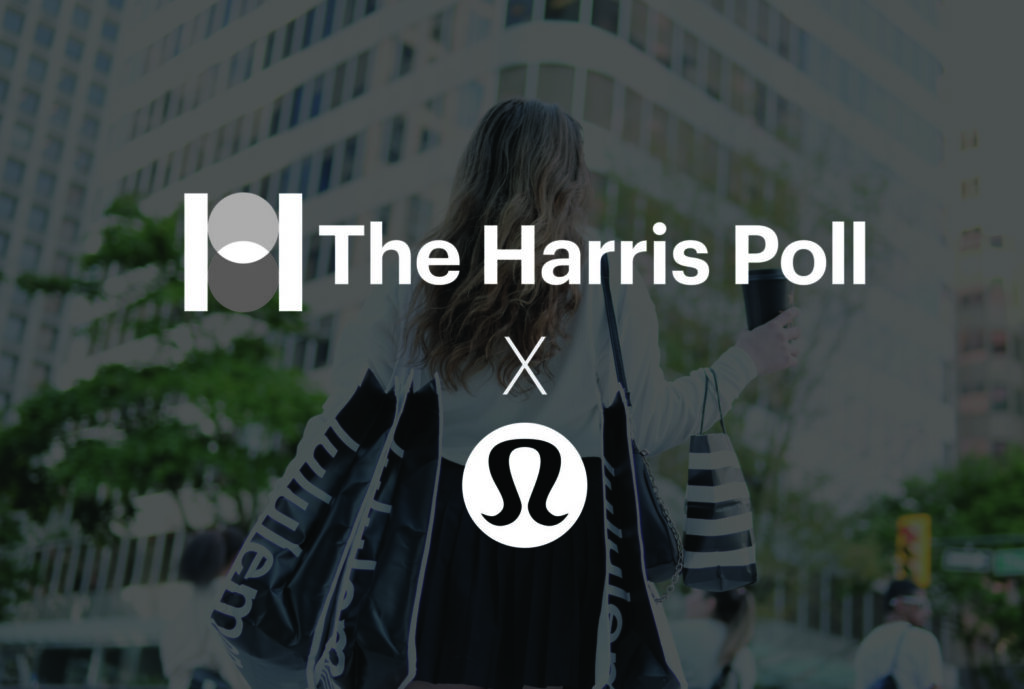Brief • 4 min Read
In The Harris Poll Tracker (Week 103) fielded February 11th to 13th, 2022 among 2,019 U.S. adults, we look at America’s next culture war over toddler COVID vaccines, how COVID exacerbated racial health disparities, the impact of supply chain disruptions on hiring practices, the slow adoption of socially responsible investing, and the appealing healthcare services that consumers want.
Tune in for our America This Week: From The Harris Poll audio event this Friday at 10am EST on LinkedIn for a data driven discussion between our CEO John Gerzema and Managing Director Abbey Lunney. They’ll be covering the latest trends in society, the economy, and the consumer marketplace.
As a public service, our team has curated key insights to help leaders navigate COVID-19. Full survey results, tables, and weekly summaries can be accessed for free at The Harris Poll COVID-19 Portal. We will continue to actively field on a regular cadence to track the shifts in sentiment and behaviors as the news and guidelines evolve.
The Next Culture War – Toddler Vaccines: Axios-Harris Poll
Pfizer and federal officials are scrambling to speed up COVID vaccines for kids under 5. But our latest poll with Axios indicates plenty of parents may be on the fence about getting their child vaccinated right away. Here’s what we learned:
- Of parents with children under 5, (60%) are likely to have their young children vaccinated, with men being more likely compared to women (69% vs. 53%).
- Almost half of the suburban respondents (49%) said they were unlikely to want the shot for their kids – almost as high as people from rural areas (57% vs. urban: 25%).
- But it will depend on parents’ vaccination status: (73%) of vaccinated parents are likely to, while only (35%) of unvaccinated parents are likely to vaccinate their children under 5.
- “When I looked at these numbers, I thought: ‘Buckle up, PTAs. Toddler vaccines are the next culture war,‘” says John Gerzema, CEO of The Harris Poll.
- Context: The push to vaccinate young children comes as even Democratic governors have announced plans to stop masking kids in schools.
Takeaway: If and when Pfizer’s vaccines become available for the youngest kids, officials will have a job ahead of them convincing many parents to take advantage, even after two years of waiting.
COVID Has ‘Widened the Chasm’ on Health Disparities: Teva-Morehouse-Harris Poll
The global pandemic has worsened health inequities, and our latest survey with Teva Pharmaceuticals and Morehouse School of Medicine covered by FiercePharma shows just how much work the industry and others have left to do.
- When it came to the impact of COVID itself, the differences were striking: (42%) of People of Color (POC) said someone in their household had the virus (v. white: 18%).
- Hispanics are being hit hardest, with twice as many as whites saying that a close friend, family member or loved one had died from COVID (41% versus 21%, respectively).
- One-third (34%) of POC said they found it difficult to access a good-quality doctor or hospital and (20%) said they faced difficulty accessing their prescription medications (v. white: 19%, 20%).
- Half of all consumers said they’d postponed or canceled health appointments during COVID, but POC were more likely to do so than whites (64% v. 53%, respectively).
- The most common reason for the missed appointments was fear of catching COVID, but others, particularly Hispanics, said they couldn’t miss work or didn’t have child care or transportation.
Takeaway: “The survey results are clear: COVID has widened the chasm,” Morehouse School of Medicine President and CEO Valerie Montgomery Rice, M.D., said in a press release, adding that the results should “further our resolve to address and eliminate” the disparities.
Companies Report Supply Chain Issues Hindering Growth & Forcing Lower Hiring Standards: Express Employment Professionals-Harris Poll
Demand for goods due to the holidays has passed, but businesses still say they are caught in a vicious cycle hindering growth and hiring fueled by supply chain failures according to our latest survey with Express Employment Professionals and covered in Yahoo! Finance.
- Three-fifths (61%) of hiring decision-makers say their company has altered hiring practices because of the national supply chain issues, with over half (56%) reporting they have relaxed hiring requirements.
- In the hard-hit manufacturing industry, (74%) of hiring managers say their company has had to alter their hiring practices, and a similar proportion in the service industries report the same (71%).
- Nearly a third (32%) reported hiring an employee specifically for logistics and supply chain positions this year.
- Who’s getting hit the hardest? Companies with 100-499 employees are more likely to have supply chain issues negatively impacting their companies growth (71%) compared to those with less than 50 or more than 500 (2-9 employees: 52%, 10-49: 56%, 500+: 63%).
Takeaway: According to Express Employment International CEO, Bill Stoller, “The U.S. economy is caught in this perfect storm where the breakdown in supply chains is just the start. When you combine that with the scarcity of workers, companies are doomed to stay in this holding pattern for the foreseeable future.”
Just 23% of Investors Align Most Investments to their Values: NerdWallet-Harris Poll
Socially responsible investing is gaining in popularity, but there’s a gap between those who value it and those who actually invest this way according to our latest survey with NerdWallet and featured in Nasdaq.
- Most investors (69%) say it’s important to invest in a socially responsible way. Of that group, (45%) say it’s most important to choose investments that focus on environmental and social impacts (29%) and governance impacts (14%).
- More than two-thirds of investors (69%) say it’s important to invest in a socially responsible way, yet, fewer than 1 in 4 investors (23%) say most or all of the money they currently have in investments is invested in accordance with their values.
- The reason for the disconnect? (68%) of investors say they don’t know the best way to invest according to their values, and (53%) say it’s difficult to find investments that align with their values.
- For the one-third of investors (31%) who say it isn’t important to them to invest in a socially responsible way, the top reason why is because they want their investments to have the highest returns regardless of whether or not they’re socially responsible (41%).

Takeaway: According to NerdWallet’s Alana Benson, “There is a lot of evidence to suggest that ESG investments can not only have similar performance to their traditional peers, but they can sometimes outperform them.”
Americans Would Consider Switching Healthcare Providers for More “Appealing” Services: Tegria-Harris Poll
Americans might say they are pleased with their current healthcare provider, but our new survey in partnership with Tegria and covered by Yahoo! Finance reveals that nearly 7 in 10 Americans (69%) would consider switching to another provider that offers more appealing services.
- What could inspire people to switch? Availability of same-day appointments for non-routine issues (35%), convenient locations where they already go (30%), and self-scheduling (29%).
- More than 4 in 5 (81%) believe the ability to schedule healthcare appointments online would make the scheduling process easier and (79%) want the ability to use technology when managing their healthcare experience.
- Three-fifths (61%) would like their healthcare experience to be more like the customer experience of an online convenience service app, such as Uber or Instacart.
- Technology is Making a Difference: (75%) have found technology helpful when working with a new healthcare provider such as getting test results, asking medical questions, or paying medical bills.
- While nearly 3 in 5 Americans (59%) would be open to having a virtual appointment for their first visit with a new provider, adults ages 65+ are much less likely to feel this way (37% vs. 65% under age 65).
Takeaway: “Providers need to change now or watch as others who do a better job at offering convenience and customer service take over their roles as community caregivers” says Tegria’s Director of Patient Access and Technology.
Subscribe for more Insights
Subscribe to our newsletter for the latest trends in business, politics, culture, and more.
Download the Data
This survey was conducted online within the U.S. by The Harris Poll from February 11 to 13, among a nationally representative sample of 2,019 U.S. adults.
Download
Subscribe for more Insights
Subscribe to our newsletter for the latest trends in business, politics, culture, and more.
Download the Data
This survey was conducted online within the U.S. by The Harris Poll from February 11 to 13, among a nationally representative sample of 2,019 U.S. adults.
DownloadRelated Content







